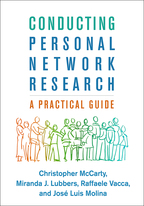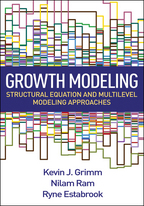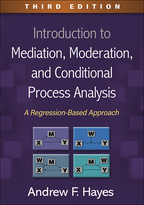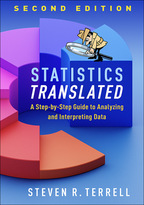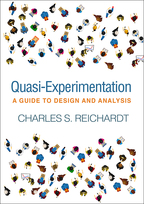Conducting Personal Network Research
A Practical Guide
Christopher McCarty, Miranda J. Lubbers, Raffaele Vacca, and José Luis Molina
A Paperback Originale-bookprint + e-book
A Paperback Original
orderApril 1, 2019
ISBN 9781462538386
Price: $54.00 270 Pages
Size: 7" x 10"
Read the Series Editor's Note by Todd D. Little
“Spectacular. The writing is clear, accessible, and succinct, yet unusually comprehensive. The book covers most of what any researcher new to this important kind of analysis would want to know, such as how to think about research questions, conduct research ethically, and collect data effectively. But this book is not only for beginners—experienced researchers will find it a useful reference on many important issues, such as the precise ways that different question wordings in surveys can affect results, and the strengths and benefits of different visualization strategies.”

—Mario Luis Small, PhD, Grafstein Family Professor of Sociology, Harvard University
“This is the best applied textbook on social network analysis I have read. It covers everything from planning and conducting a network study to using network analysis to answer network-specific questions. It provides real-life examples and conceptual explanations in clear, understandable language. The book offers the perfect balance of foundational knowledge of network processes and practical tips for examining them. This is a 'must read' for anyone embarking on network research.”

—Leslie Echols, PhD, Department of Psychology, Missouri State University
“A sound, well-written, and authoritative guide on how to do (and interpret) personal network research. The book nicely links personal network analysis to broader methodological approaches. I really like the boxed research case examples. I recommend this book and will use it both in teaching and professionally.”

—Barry Wellman, PhD, Director, NetLab Network, Toronto, Canada
“This is an exciting book because it can be used by so many. Researchers new to personal network analysis get definitions, concepts, and design help that will get them going and carry them a long way. At the same time, the book has nuggets that even the most experienced in the field will value. The authors know well many of the methodological issues regarding social network analysis, and have made important contributions, specifically regarding the measurement of networks, the use of multilevel models, and generation of network visualizations. But they also know fieldwork and the deeper scientific issues and challenges that often accompany methodological decisions. This is evidence-based practice at its best. I will immediately recommend this book to several of my students engaging in analysis of personal networks, as well as others who will benefit from specific chapters. I can think of several projects in the past that would have benefited from this book. I am thrilled that it is here now.”

—Ken Frank, PhD, MSU Foundation Professor of Sociometrics, Department of Counseling, Educational Psychology, and Special Education, Michigan State University
“The book describes the breadth of research in the field. It walks the reader through the process of creating a personal network, typically through a name generator, and addresses important conceptual considerations and pitfalls. I'm a big fan of the boxed examples throughout the book; they tend to summarize really interesting findings. The authors impart a great deal of wisdom and provide enough information to work from initial conceptualization to analysis and presentation of results.”

—Bernie Hogan, PhD, Senior Research Fellow, Oxford Internet Institute, University of Oxford, United Kingdom
“This is an ideal introductory book for graduate students and researchers interested in studying personal networks. The authors provide great illustrations and case studies of personal networks and why they matter to many outcomes of interest, across fields as diverse as sociology, organizational science, and public health. Descriptions of the challenges that often arise when studying personal networks—and the pros and cons of various solutions—will doubtless help readers make informed decisions when planning their own research.”

—Kayla de la Haye, PhD, Department of Preventive Medicine, Keck School of Medicine, University of Southern California
“Written by leading, accomplished scholars, this is a rich how-to guide for students seeking to conduct network analysis. In particular, the book explains well the care—both conceptual and practical—that must be taken to best construct and measure the qualities of social ties.”

—Claude S. Fischer, PhD, Professor of the Graduate School, Department of Sociology, University of California, Berkeley
—Mario Luis Small, PhD, Grafstein Family Professor of Sociology, Harvard University
“This is the best applied textbook on social network analysis I have read. It covers everything from planning and conducting a network study to using network analysis to answer network-specific questions. It provides real-life examples and conceptual explanations in clear, understandable language. The book offers the perfect balance of foundational knowledge of network processes and practical tips for examining them. This is a 'must read' for anyone embarking on network research.”
—Leslie Echols, PhD, Department of Psychology, Missouri State University
“A sound, well-written, and authoritative guide on how to do (and interpret) personal network research. The book nicely links personal network analysis to broader methodological approaches. I really like the boxed research case examples. I recommend this book and will use it both in teaching and professionally.”
—Barry Wellman, PhD, Director, NetLab Network, Toronto, Canada
“This is an exciting book because it can be used by so many. Researchers new to personal network analysis get definitions, concepts, and design help that will get them going and carry them a long way. At the same time, the book has nuggets that even the most experienced in the field will value. The authors know well many of the methodological issues regarding social network analysis, and have made important contributions, specifically regarding the measurement of networks, the use of multilevel models, and generation of network visualizations. But they also know fieldwork and the deeper scientific issues and challenges that often accompany methodological decisions. This is evidence-based practice at its best. I will immediately recommend this book to several of my students engaging in analysis of personal networks, as well as others who will benefit from specific chapters. I can think of several projects in the past that would have benefited from this book. I am thrilled that it is here now.”
—Ken Frank, PhD, MSU Foundation Professor of Sociometrics, Department of Counseling, Educational Psychology, and Special Education, Michigan State University
“The book describes the breadth of research in the field. It walks the reader through the process of creating a personal network, typically through a name generator, and addresses important conceptual considerations and pitfalls. I'm a big fan of the boxed examples throughout the book; they tend to summarize really interesting findings. The authors impart a great deal of wisdom and provide enough information to work from initial conceptualization to analysis and presentation of results.”
—Bernie Hogan, PhD, Senior Research Fellow, Oxford Internet Institute, University of Oxford, United Kingdom
“This is an ideal introductory book for graduate students and researchers interested in studying personal networks. The authors provide great illustrations and case studies of personal networks and why they matter to many outcomes of interest, across fields as diverse as sociology, organizational science, and public health. Descriptions of the challenges that often arise when studying personal networks—and the pros and cons of various solutions—will doubtless help readers make informed decisions when planning their own research.”
—Kayla de la Haye, PhD, Department of Preventive Medicine, Keck School of Medicine, University of Southern California
“Written by leading, accomplished scholars, this is a rich how-to guide for students seeking to conduct network analysis. In particular, the book explains well the care—both conceptual and practical—that must be taken to best construct and measure the qualities of social ties.”
—Claude S. Fischer, PhD, Professor of the Graduate School, Department of Sociology, University of California, Berkeley

